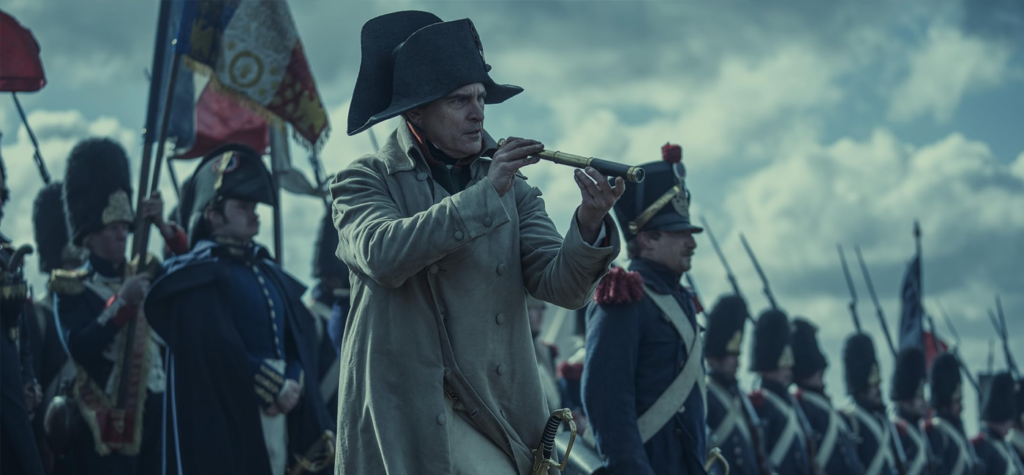Leading Like Napoleon: Strategic Thinking for Cannabis Executives

With the latest movie about Napoleon out, I’ve been thinking about what kind of military lessons we can glean from the Napoleonic wars.
I received formal military training regarding strategy and operations. I don’t pretend to be brilliant in either strategy or operations but the training has given me an appreciation for the subject. Napoleon is a large focus in Military Science. My military and business training is complementary. I always try to see the parallels in military and business strategy. I ask myself, can my clients succeed by applying Napoleon’s management style?
In the 1800s, mischievous British schoolchildren faced the specter of Napoleon, with teachers warning that the French leader would dismantle them “limb from limb, just as a pussy tears a mouse.” Even Elon Musk, a self-professed admirer of Napoleon’s managerial prowess, has yet to endure such ignominy.
Napoleon Bonaparte, a figure both reviled and revered, continues to cast a long shadow on our understanding of leadership, as executives accused of having a ‘Napoleon complex’ can attest, even 202 years after his death.
The Art of Strategy: Lessons from Napoleon for Cannabis Industry Leaders
Conventional military thinking is less concerned about “reviled or revered.” Conventional military thinking is concerned about results. It views Napoleon as a brilliant strategist but the opinion for his ability to develop a decentralized Army is much lower.
Napoleon was brilliant. His staff was not. If he was not directly managing a campaign, his Army was an average army. Military science would say Napoleon did not know how to develop his general staff.
A general staff does the thinking for the General, and the General refines their input. The General gives the goal, the staff is the brain and creates the implementation, and the General responds back to refine operations and strategy. Does this sound like a how a modern CEO of a mid sized company needs to operate? The CEO provides the overall direction, the executive staff develops the plan, and the CEO refines it and tells the staff to execute.
Despite the pitfalls of his military endeavors, such as the ill-fated 1812 invasion of Russia and the Battle of Waterloo, leaders remain captivated by Bonaparte. Visionaries like George Patton, Kenneth Chenault, Bill Gates, and Jeff Bezos, who allegedly owns the very floor where Napoleon proposed to Josephine, share Musk’s fascination with extracting leadership lessons from the Corsican conqueror.
William Duggan, an American expert in creativity, highlights Napoleon’s early success at the siege of Toulon, achieved at the age of 24 without prior military experience. Duggan underscores the value of intelligent memory in generating creative ideas, emphasizing Napoleon’s ability to perceive conflict holistically and challenge conventional practices.
In the contemporary era, Napoleon would undoubtedly embrace social media to project the right image, reminiscent of his emphasis on rituals, gestures, symbols, and art during his reign. His awareness of the power of public opinion, encapsulated in his statement, “Four hostile newspapers are more to be feared than 1,000 bayonets,” resonates with the challenges faced by today’s leaders in the age of information.
Applying Napoleon’s Visionary Leadership to Cannabis Strategy
While Napoleon’s reputation as Europe’s greatest living supervillain eventually led to his downfall, his achievements and innovations endure. His remarkable success rate in battles—winning 50 out of 60—remains an enviable benchmark for any CEO. Beyond military triumphs, Napoleon introduced a legal code, central bank, national audit office, a new currency (the franc), and administrative rules that still influence France today.
Napoleon’s impact extends beyond military strategy; Carl von Clausewitz drew inspiration from him to write ‘On War,’ a seminal work on leadership. According to Peter Drucker, one of Napoleon’s enduring lessons lies in his adept self-management: “The greater the man, the less opinionated he is, he depends upon events and circumstances.”
Timeless Leadership Lessons for Cannabis Entrepreneurs
There are actionable insights to be distilled from Napoleon’s leadership style—emphasizing the importance of strategic patience, the ability to inspire hope, a physical presence for morale-building, decentralized decision-making, and the necessity of focus and choice.
As readers seek further understanding, recommendations for essential reading include Andrew Roberts’ ‘Napoleon The Great‘ and Georges Lefebvre’s ‘Napoleon,’ with insights not only into Bonaparte’s successes but also his later career flaws. For those preferring concise business lessons, Clausewitz and Jerry Manas’s ‘Napoleon On Project Management‘ offer valuable takeaways. Additionally, Simon Leys’ novella ‘The Death of Napoleon‘ vividly captures the personality of this iconic historical figure.
About The Author
Abraham Finberg, Managing Partner
Abraham Finberg MBA, CPA, managing partner at AB FinWright, has been a leader in the cannabis sphere since 2009, counseling clients in all phases of business advisory and tax, from start-up through M&A and IPO.





